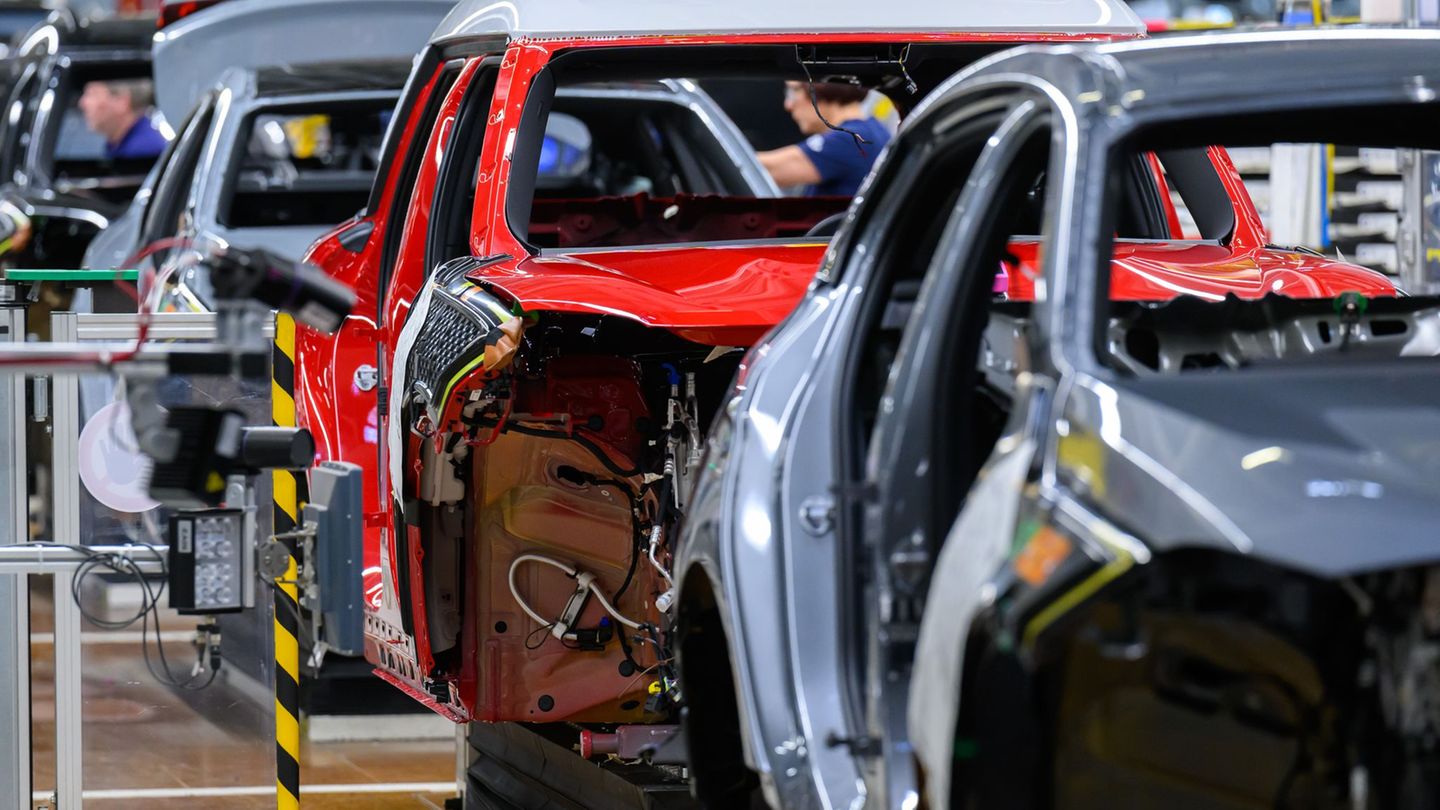E-cars are selling poorly, and the high prices also deter potential buyers. The industry warns that tariffs on Chinese imports into the EU would probably not make things better.
The industry expects the introduction of punitive tariffs on Chinese electric cars to have negative consequences for the automotive trade and car buyers. For consumers, the intervention in competition with Chinese manufacturers threatens to make prices for electric cars more expensive, said the vice president of the Central Association of the German Motor Vehicle Trade (ZdK), Thomas Peckruhn, in the “Augsburger Allgemeine”. That would further deteriorate the already cautious buying mood.
Peckruhn said that punitive tariffs would distort competition for car dealers who decided to take up a Chinese brand and made investments to do so. In addition, the likelihood of a Chinese backlash is high. This would affect all exports of vehicles not produced in China and lead to a weakening of manufacturers and suppliers based in Germany. “Punitive tariffs are not a solution for fair, global trade,” emphasized the association vice-president.
The path for EU tariffs is clear
The EU could impose additional tariffs on electric cars from China despite resistance from Germany. A sufficient majority of EU states have not spoken out against the plan, as EU diplomats confirmed on Friday. This means that the EU Commission can decide at any time to introduce taxes of up to 35.3 percent. German car manufacturers reacted with concern and continue to hope for a negotiated solution. The Chinese government, for its part, wants to continue negotiations.
It is still unclear whether or to what extent possible tariffs would be passed on to customers. If manufacturers do not pass on the costs, they would have to pay the surcharge out of their own pocket. According to calculations by the Kiel Institute for the World Economy (IfW) from the end of May, tariffs would lead to rising purchase prices for electric cars as imports of cars from China would decline.
Sales of electric cars are weak anyway
Due to weak demand for electric cars, the industry has just further lowered its forecast for 2024. The Association of the Automotive Industry (VDA) announced that annual sales of only 372,000 battery-powered cars are expected, 29 percent less than in the previous year. The industry association had previously assumed a decline of 25 percent to 393,000 new electric cars.
According to the information, only 276,000 battery-only vehicles were sold in Germany in the first nine months, 29 percent fewer than in the same period last year. According to the VDA, the main reason for this is the loss of e-car funding last year. This means that 13 percent of all new registrations were electric cars.
Baden-Württemberg’s Transport Minister Winfried Hermann (Greens) complained that manufacturers in Europe had not developed enough affordable, small electric models. The tariffs would now also make cheaper electric cars from China more expensive and thus slow down the switch to electric mobility. “This contradicts the EU’s own climate goals and is therefore harmful to the climate and economically fatal.”
VW boss: Still time for a negotiated solution
VW CEO Oliver Blume fears that Beijing will impose tariffs on German cars that are exported or built in China as a backlash. It is important that the German federal government continues to take a clear position against tariffs in the EU. “We still have until the end of October before these come into force. My hope is that Brussels will come to an agreement with the Chinese side and reach a fair solution for both sides,” said Blume.
Instead of tariffs, the aim should be to consider investments positively for both sides. “Anyone who invests, creates jobs, and works with local companies should have advantages in terms of tariffs. We would then expect the same in the regions in which we produce and invest,” said the manager. When asked whether Chinese manufacturers should have their electric cars produced in Germany, Blume replied: “Yes, that would be an approach. That would apply not only to companies from China, but also from other regions that invest in Europe and thus have a positive impact on the economy.”
Source: Stern




